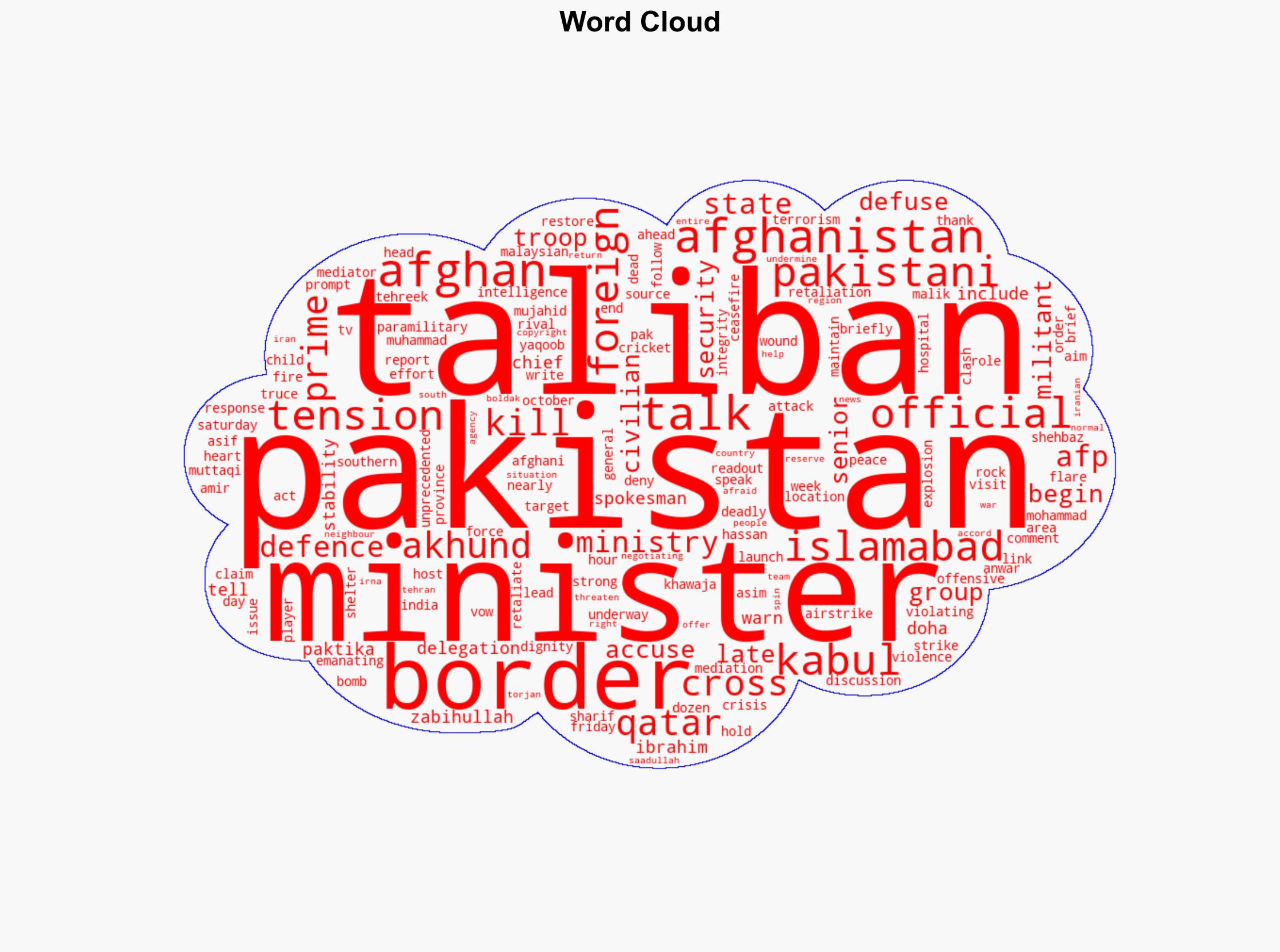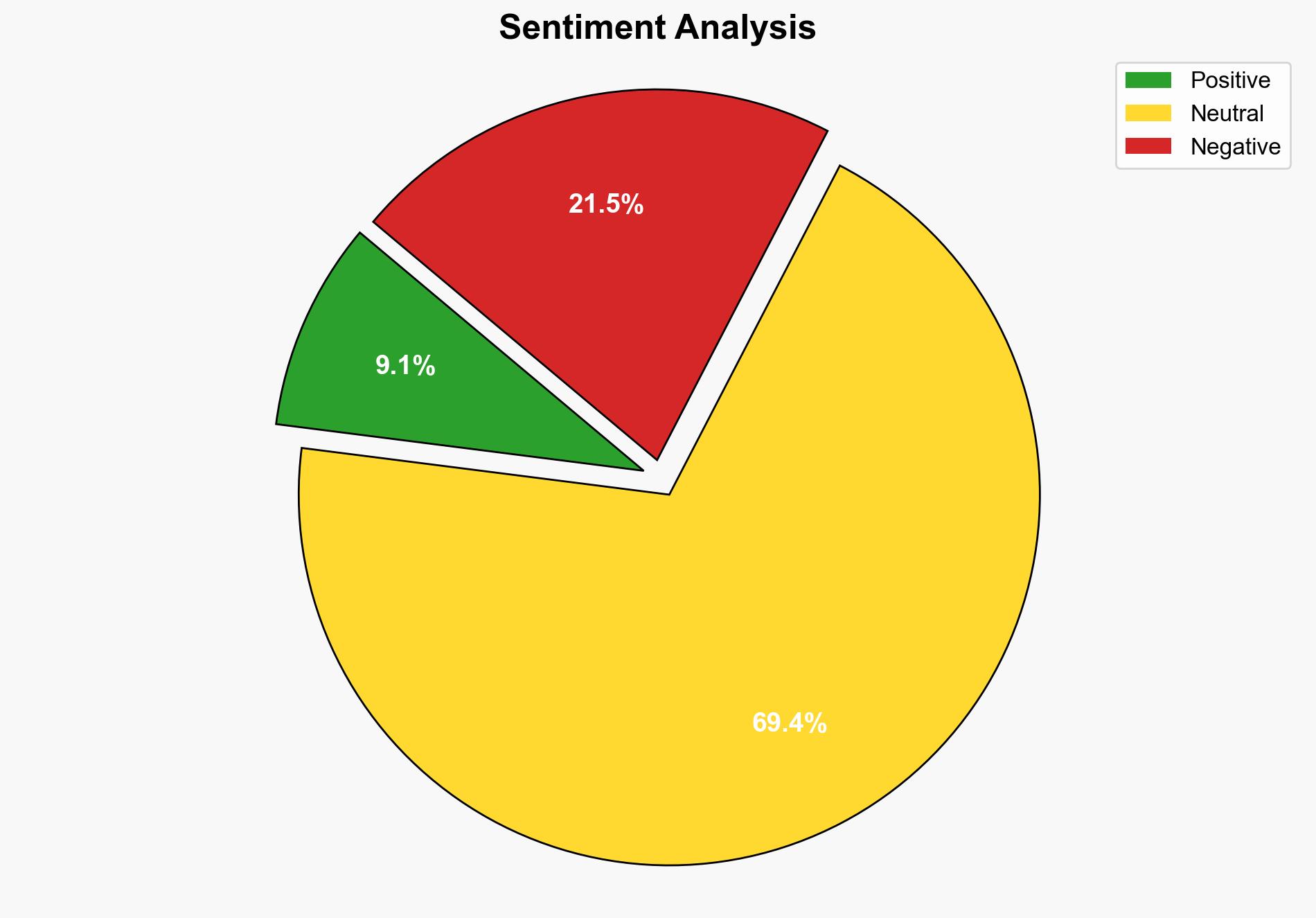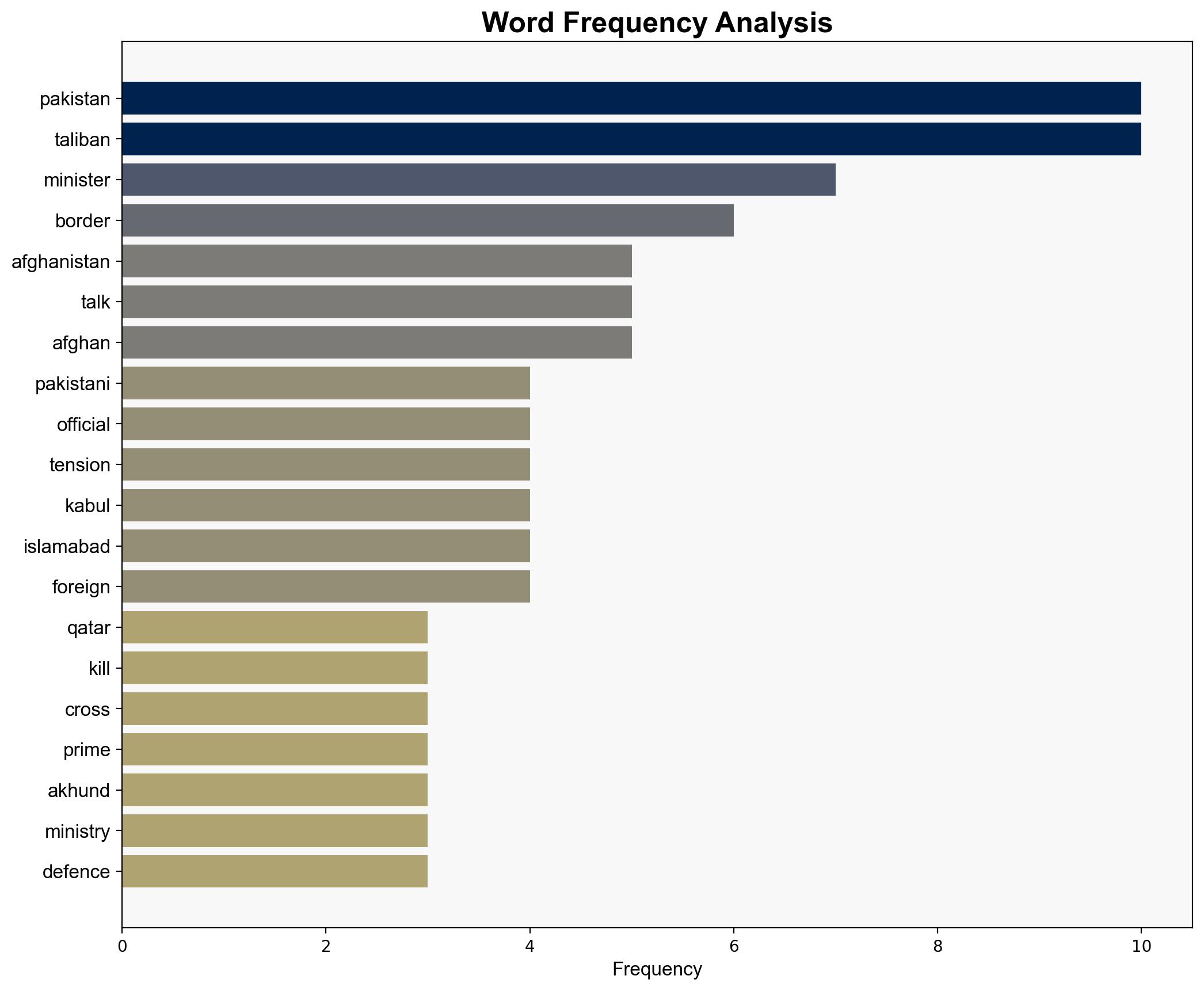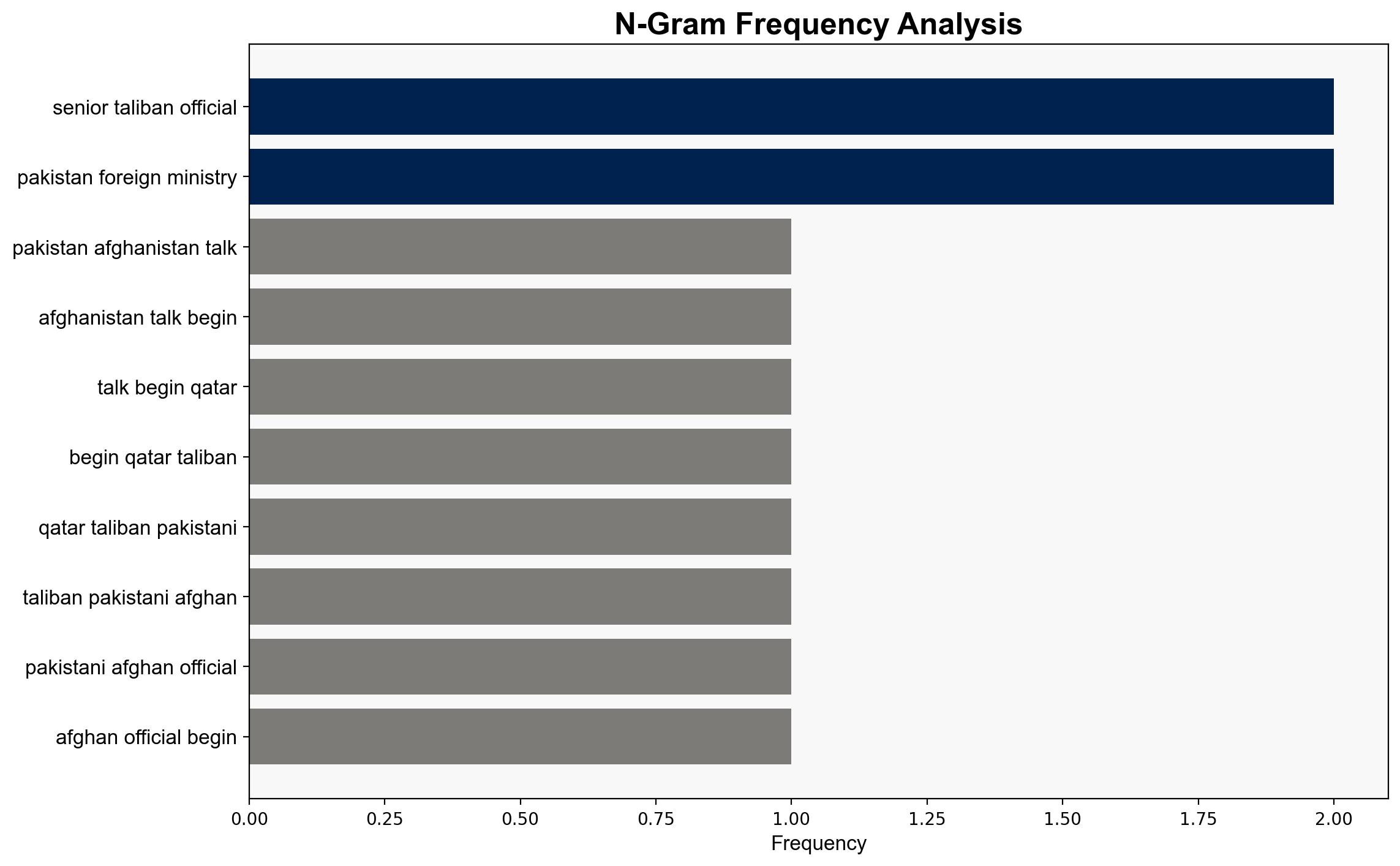Pakistan Afghanistan Talks Begin In Qatar Taliban – International Business Times
Published on: 2025-10-18
Intelligence Report: Pakistan Afghanistan Talks Begin In Qatar Taliban – International Business Times
1. BLUF (Bottom Line Up Front)
The most supported hypothesis is that the talks in Qatar are primarily a diplomatic effort to de-escalate immediate tensions and prevent further cross-border violence between Pakistan and Afghanistan. Confidence level is moderate due to ongoing regional instability and complex stakeholder dynamics. Recommended action is to support multilateral diplomatic engagement and monitor for shifts in regional alliances or escalations.
2. Competing Hypotheses
1. **Diplomatic De-escalation Effort**: The talks aim to defuse immediate tensions and prevent further cross-border violence, with a focus on establishing a framework for ongoing dialogue and cooperation.
2. **Strategic Posturing**: The talks are a strategic maneuver by both Pakistan and Afghanistan to gain international support and leverage against each other, without a genuine commitment to resolving underlying issues.
Using ACH 2.0, the first hypothesis is better supported due to the presence of mediators like Anwar Ibrahim and the involvement of high-level officials from both countries, suggesting a genuine attempt at dialogue. However, the history of mistrust and recent violence lends some credence to the second hypothesis.
3. Key Assumptions and Red Flags
– **Assumptions**: It is assumed that both parties are acting in good faith and that external mediators can influence outcomes positively.
– **Red Flags**: The rapid escalation of violence prior to talks and the involvement of militant groups could undermine diplomatic efforts. The absence of a clear commitment from the Taliban to curb cross-border terrorism is a significant gap.
4. Implications and Strategic Risks
The talks have the potential to stabilize the region temporarily, but failure could lead to increased violence and destabilization. The involvement of external actors like Iran and Malaysia indicates broader regional stakes. Economic impacts could arise from disrupted trade routes, and there is a risk of cyber operations targeting critical infrastructure as tensions persist.
5. Recommendations and Outlook
- Encourage continued diplomatic engagement and support confidence-building measures between Pakistan and Afghanistan.
- Monitor regional actors’ involvement to anticipate shifts in alliances.
- Best-case scenario: Successful talks lead to reduced violence and a framework for ongoing dialogue.
- Worst-case scenario: Talks fail, leading to increased cross-border attacks and regional instability.
- Most likely scenario: Talks result in a temporary de-escalation but fail to address root causes of conflict.
6. Key Individuals and Entities
– Hassan Akhund
– Muhammad Shehbaz Sharif
– Anwar Ibrahim
– Zabihullah Mujahid
– Mohammad Yaqoob
– Amir Muttaqi
– Saadullah Torjan
7. Thematic Tags
national security threats, counter-terrorism, regional focus





